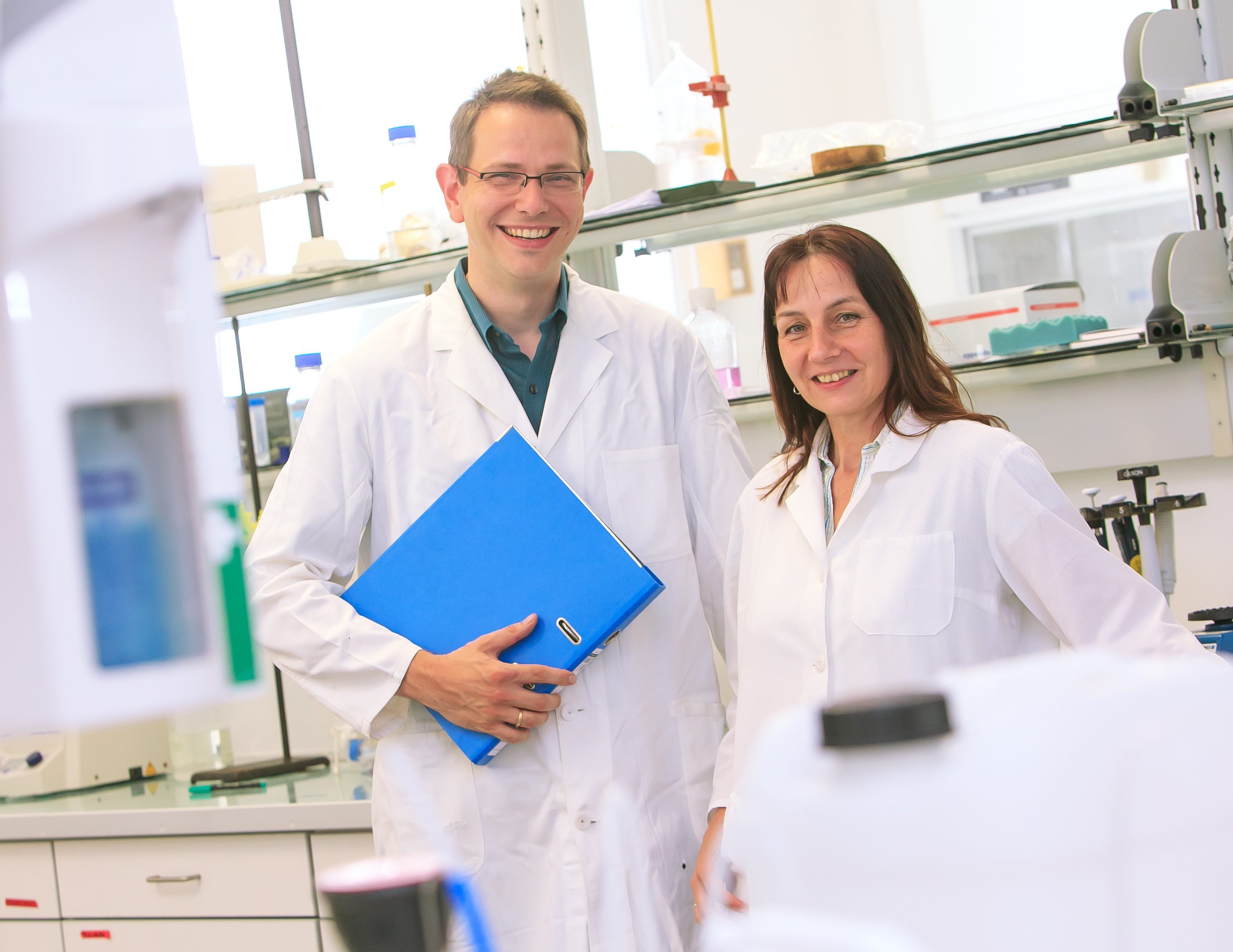Universities extend partnership by another ten years
[press release written by Susann Huster/Anett Albrecht, April 10, 2018]
The cooperation between the University of Leipzig and Vanderbilt in Nashville (USA) has been contractually sealed for another ten years. A few days ago, the rectors of both universities signed a Memorandum of Understanding. The American Max Kade Foundation had previously approved an application for funding from project leaders Prof. Dr. Annette Beck-Sickinger from the Institute of Biochemistry at the Leipzig University and Prof. Dr. Jens Meiler from Vanderbilt University: The foundation will also support the exchange with 50,000 dollars (40,000 euros) per year between 2017 and 2021.
“We hope that the already established excellent relations with Vanderbilt University will continue to develop positively and fruitfully for both partners and that they will in future spread to other departments and international cooperation partners of the university,” said Beck-Sickinger. The university partnership between the University of Leipzig and Vanderbilt University has existed since 2006. Both have common research interests and thus produced numerous excellent research results and publications. There is a lively scientific exchange: students, doctoral students, postdocs, and professors regularly conduct research at the respective partner institution, learn new methods and give scientific courses. To date, 46 students, 30 doctoral candidates, 13 postdocs and 56 lecturers from both universities have participated in the exchange at all academic levels.
A separate funding procedure was launched for the exchange programme in 2012: Interested doctoral students can submit a “microfinance application” to the steering committee of the Vanderbilt-Leipzig collaboration. If the proposal is approved, the funding will primarily include funds for travel and housing. To date, this scientific exchange has produced a total of 33 joint scientific publications at all academic levels. In addition, researchers at the respective partner universities taught ten teaching modules, which generally lasted two weeks.
Joint graduate training planned
The researchers in Leipzig and Nashville also complement each other with their complementary methods, for example in computer biology, which is represented at an excellent level at Vanderbilt University. The Leipzig University, in turn, has a very strong profile, for example in biochemistry and NMR spectroscopy, a spectroscopic method for investigating the electronic environment of individual atoms and their interactions with neighbouring atoms. The chemist Prof. Dr. Jens Meiler from Vanderbilt University, who has been working closely with Annette Beck-Sickinger’s research group for many years, was awarded the prestigious Friedrich Wilhelm Bessel Research Prize by the Humboldt Foundation in 2015 and then came to Leipzig University as a visiting professor. Both scientists also cooperate in joint collaborative projects. “The cooperation with the University of Leipzig combines top-level research, which often takes place in international research alliances, with the international education of students, doctoral students and scientific staff in an excellent way,” emphasises Meiler.
In the future, both universities want to establish a joint graduate education program. The potential for student exchange will increase considerably as a result of the regular teaching modules at the partner institutions. With the current funding commitment from the Max Kade Foundation, up to eight students and two scientists can finance a stay at the respective partner institution each year. “Our aim is not only to deepen relations and increase the frequency of exchanges at all levels, but also to establish joint collaborative projects such as an International Research Training Group,” explains project manager Beck-Sickinger. In the medium term, the two universities hope to introduce a joint doctoral degree. The Leipzig University supports the cooperation by financing half a coordination office from April 2018 to the end of 2021.

